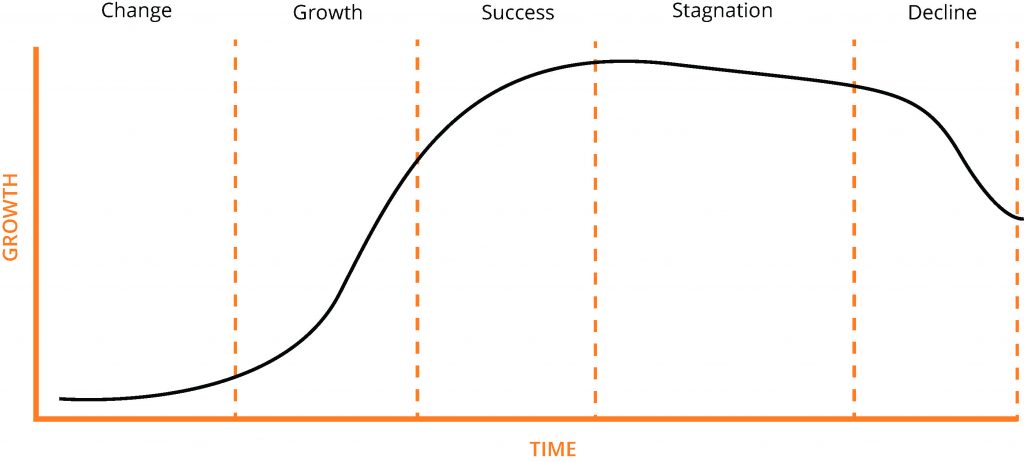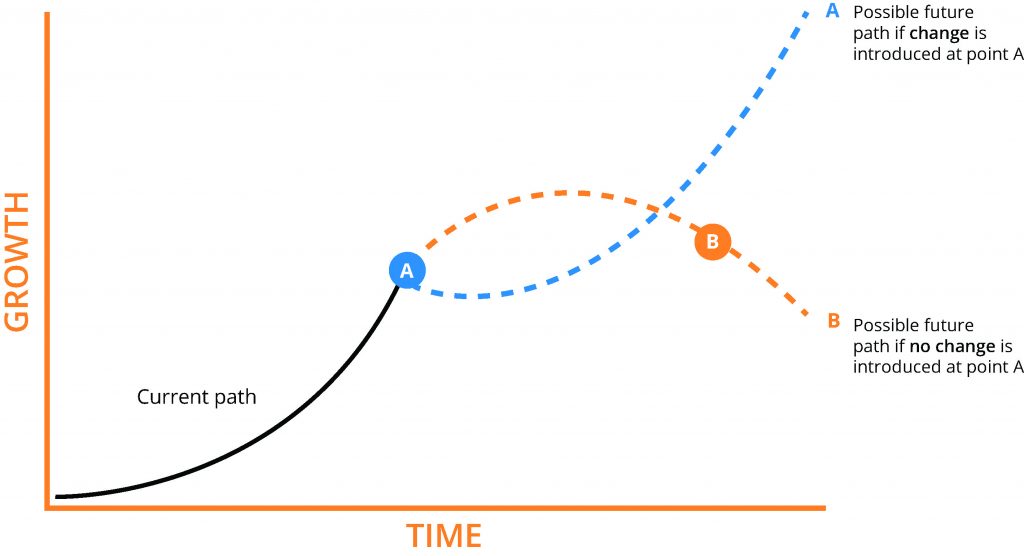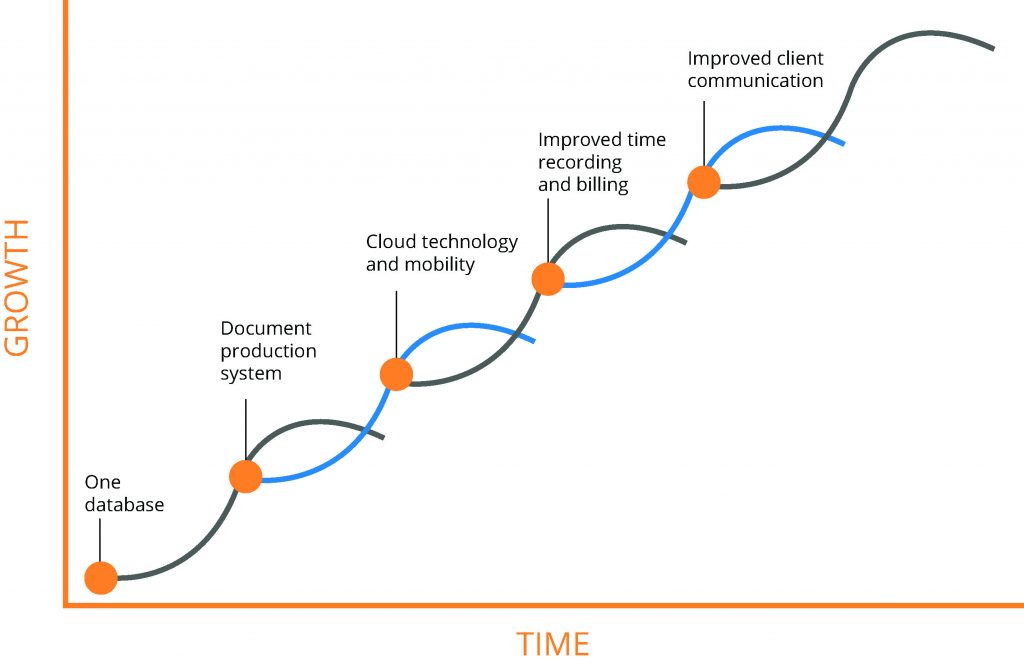
Richard Hugo-Hamman, executive chairman of LEAP, discusses change and how to use technology to keep ahead of the curve.
Your law firm is a business, growth and profitability is paramount. You want to see your client base grow and your profits increase. More importantly, you don’t want to go backwards just because you are so busy working in the business that you don’t notice what is happening. You may have other goals – opening another office or being recognised as experts in a niche field. Whatever your measure of success, you want it to endure.
Creating consistent, long-term growth can prove elusive. The best way to generate long-term growth is through the regular introduction of change to create new ways of doing things. For many businesses, including law firms, the clearest path to continued success is through the regular implementation of new technology in an ongoing cycle.
This needs a culture of innovation so that your whole firm is accustomed to continuous improvement.
You can visually plot the impact of innovation on growth and the inevitable progress through to decline using what is called the Sigmoid Curve.

The Sigmoid Curve can be widely applied to the rise and fall of empires, countries, products and businesses, including law firms. It is comprised of five phases:
1. The introduction of change phase. In an established law firm, this phase can occur when you begin investigating potential areas of improvement. You may consider how you can streamline your processes using a technological solution. The phase culminates in selecting a solution to provide growth and implementing it.
2. The Growth phase. The streamlining of processes results in an increase in efficiency, productivity and billing. Improved customer service leads to an expanding client base.
3. The Success phase. Your firm is more profitable and is the peak of success. Complacency is the danger. For many businesses, the elation that comes with success makes it difficult to appreciate that without further innovation, this growth will eventually decline. Your firm doesn’t look for ways to improve or prolong its growth. You believe your success will be long-term.
4. The Stagnation phase. Your law firm hits a plateau. Growth and revenue stagnates. You are benefitting from the last technology change, but previous efficiencies gained are not having the same impact that they once did, and areas that need improvement for you to keep competitive are now becoming an issue.
5. The Decline phase. The markers of success are in decline. Revenue is shrinking and your firm is no longer as profitable as it once was. At this point, it is increasingly difficult to initiate a change event.
The decline of growth is not inevitable. The issue lies in businesses reaching a peak and rather than finding ways to improve, they rest on their laurels. They fail to consider that success doesn’t last forever, so they are unable to objectively identify areas of potential improvement in their business.
To achieve long-term growth in your law firm, don’t fall into the trap of thinking the process of decline doesn’t apply to you. Much larger firms have declined and been merged away or even gone out of business, because they believed the process did not apply to them and they did not adapt or innovate.

The best time to start a new ‘curve’ is before you reach the peak of your existing one. That way, you will be starting something new when you still have the resources to take it to new heights.
In many respects, law is a slow-moving profession. This can have a negative impact on your business, particularly when your clients have adapted to evolving technologies but you haven’t. If you want to stay competitive you need to consider how you can meet the expectations of the modern client, as well as the ways you can improve your practice using technology.
Seeking a legal software provider for your firm that is committed to innovation will allow your practice to enjoy natural and repeated cycles of growth creating new efficiencies. By adopting a single provider with a focus on ongoing software development, you will not have to worry about switching providers chasing efficiencies offered by new technologies.
LEAP invests more than eight million pounds a year in research and development. It is continuously innovating solutions that keep clients from being stuck in the stagnation to decline phases. This commitment to innovation has enabled LEAP to become the most popular practice management platform for law firms.

Don’t wait for the business to decline before attempting to introduce change. At this point, it could become much more difficult. Instead, capitalise on previous efficiencies by regularly introducing change before you hit the success peak. A platform provider dedicated to innovation can help you create natural and repeated cycles of growth, ensuring your firm’s success and profitability rises steadily over time. LEAP has innovated for more than 25 years, has insulated clients from the cost of changing systems and introduced compelling new features enabling clients to take advantage of new technologies without great disruption.
For further information on ensuring the long term growth of your law firm, visit www.leap.co.uk.
Richard Hugo-Hamman is the Global Executive Chairman of LEAP Legal Software. After a first career as a lawyer Richard has spent the last 25 years developing and delivering software and legal content to lawyers in small firms. LEAP is the largest privately owned supplier of software and content to small law firms in the world.
Richard comments regularly on matters affecting small law firms and you can follow him on LinkedIn.